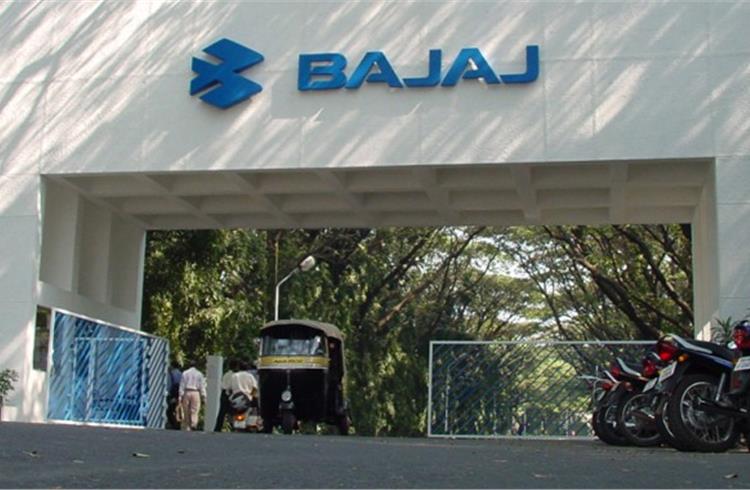Bajaj Auto posts industry leading EBIDTA of 21.2% for Q1 FY2017
The standalone profit after tax stands at Rs 978 crore for the three-month period this year as compared to Rs 957 crore for Q1 FY2016.
Bajaj Auto, India’s second-largest motorcycle manufacturer, has declared an industry leading operating EBIDTA margin (earnings before interest, taxes, depreciation and amortisation) of 21.2 percent for the first quarter of ongoing fiscal (Q1 FY2017). The company’s EBIDTA margins stood at 21.1 percent for Q1 FY2016.
The company’s total turnover for Q1 FY2017 stood at Rs 6,356 crore as against Rs 6,188 crore recorded for the corresponding quarter of the previous fiscal. Interestingly, this is despite the overall decline in two-wheeler exports.
The standalone profit after tax stands at Rs 978 crore for the three-month period this year as compared to Rs 957 crore for Q1 FY2016.
Bajaj Auto registered total sales (including domestic and exports sales of two-wheelers and commercial vehicles) of 994,733 units for Q1 FY2017, which is marginally down by close to 2 percent YoY.
While the domestic business for the first quarter has flourished by 16 percent YoY including the sales of motorcycles and CVs, the export business has dropped by 22 percent YoY for the same period.
The company sold 548,880 motorcycles and 75,204 CVs during Q1 this year thereby recording growth of 13 percent and 48 percent YoY respectively.
On the export front, it despatched 323,660 motorcycles and 46,989 CVs during the same period, thus registering a YoY decline of 17 percent and 46 percent respectively.
With numbers from the domestic market taking the charge, Bajaj Auto claims to have improved its market share in the local motorcycle segment to 19 percent during Q1 FY2017. This can be attributed to the success of its last two product launches – the 150cc V15 and the 150cc and 220cc Avenger models.
According to the company, while it has sold close to 82,000 units of the V15 commuter motorcycle, the Avenger line-up has contributed well with its sales of more than 56,000 units during Q1 FY2017.
“The Pulsar and Avenger combined recorded a growth of 20 percent while the segment growth for the industry was 13 percent. KTM recorded a growth of 23 percent,” quotes an official press note from the company.
Commercial Vehicle business
With the growth in its CV business in the domestic market, Bajaj Auto claims that its market share in the same has improved from 47 percent in FY2016 to 54 percent in Q1 FY2017. It says that this growth can be attributed to the gains in the diesel small CV segment.
For its international business, Bajaj Auto’s average INR realisation per USD for Q1 FY2017 stood at Rs 67.1 per 1 US$ as against Rs 63.9 per 1 US$ in Q1 FY2016.
BAIH BV, Bajaj Auto’s Netherland-based 100 percent subsidiary, which holds 47.99 percent stake in KTM AG, has received a dividend of 2 euros per share (declared by KTM AG for CY2015) in April-June 2016 quarter.
Overall, including all businesses, Bajaj Auto’s consolidated profit after tax (PAT) breached the Rs 1,000 crore mark by clocking Rs 1,040 crore for Q1 FY2017 as against Rs 914 crore for the same period last fiscal.
Also read: Bajaj Auto's FY2016 results
RELATED ARTICLES
Bosch hydrogen engine tech-powered truck to be on Indian roads this year
The global supplier of technology and services is betting big on both electromobility and hydrogen. While announcing the...
IIT Bombay inaugurates Arun Firodia Research Floor
IIT Bombay, one of India’s top technical and research institutions, honours Kinetic Group chairman Dr Arun Firodia, one ...
Maruti Suzuki expands capacity at Manesar plant by additional 100,000 units
New assembly line at Plant A expands total manufacturing capacity at the Manesar plants to 900,000 units per annum. Alon...





 By Amit Panday
By Amit Panday
 27 Jul 2016
27 Jul 2016
 17758 Views
17758 Views









